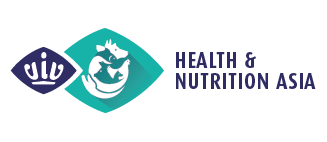Comprehensive approach to safeguarding productivity
Not only does Asia play host to 60% of the world’s current population, it also has the highest growth rate today. Given its wealth of resources and ecological and biological diversity, it is in the perfect position to support this growth. With our technical support team in Asia, we provide continuous education through the sharing of knowledge and experience, and to develop custom-made programs to meet the growing need for antibiotic reduction, while maintaining productivity and profitability.

In Asia, we recognize that the developments of the livestock industry are vastly different from other continents. Even within the region there are great differences, not only between various subregions and countries, but even within a country itself.
This ranges from highly sophisticated, fully integrated producers with modern, high-tech facilities/equipment, to backyard farmers situated just next door. Here, there is an ever-increasing global awareness and demand from consumers and governments alike, to reduce or restrict the use of antibiotics used in animal feeding, primarily to combat the threat of antimicrobial resistance by bacteria.
Throughout 35 years of offering alternative solutions to the use of antibiotics in livestock feed worldwide, we have gained experience and invested substantially into science, research and technology to continually develop expertise in this area.
Biomin has been a strong supporter of both VICTAM and VIV for many decades now. We have always participated in both events, not only to showcase our latest breakthroughs, but also because our partners and customers expect us to be there. Now that VICTAM and VIV are joining forces, we expect to experience the synergy of the two largest show organizers in Asia, as Animal Feed Technology and Grain Processing, come together with Animal Health and Nutrition in one show.
During the Bangkok event, we want to show that antimicrobial resistance is reversible. That is possible through correctly customized and positioned strategies that not only consist of improved genetics, management, biosecurity, veterinary healthcare and vaccination programs, but also the incorporation of precision feeding, optimized nutrition and an additional line of defense from the use of functional feed additives that are effective, safe, natural and sustainable.”
